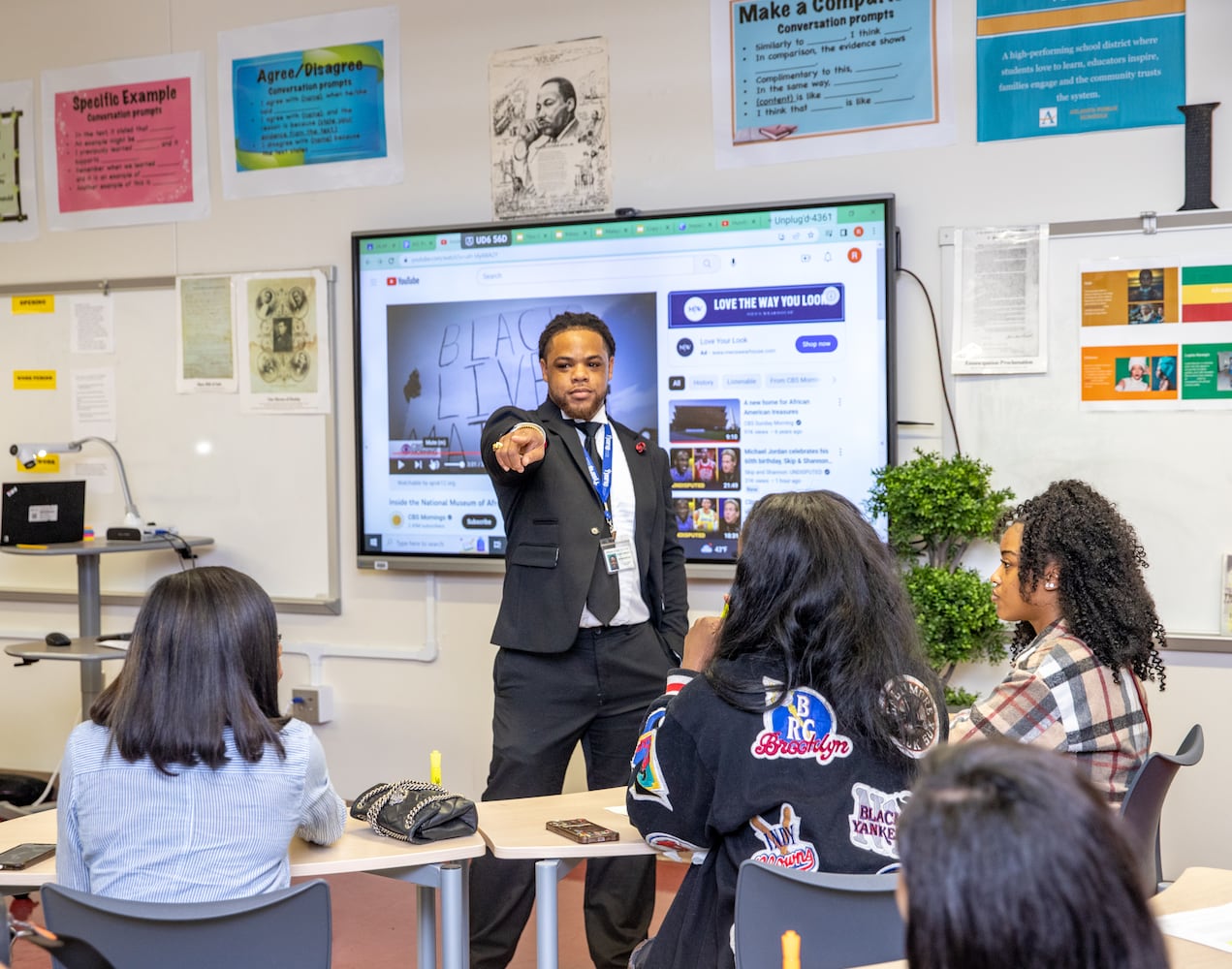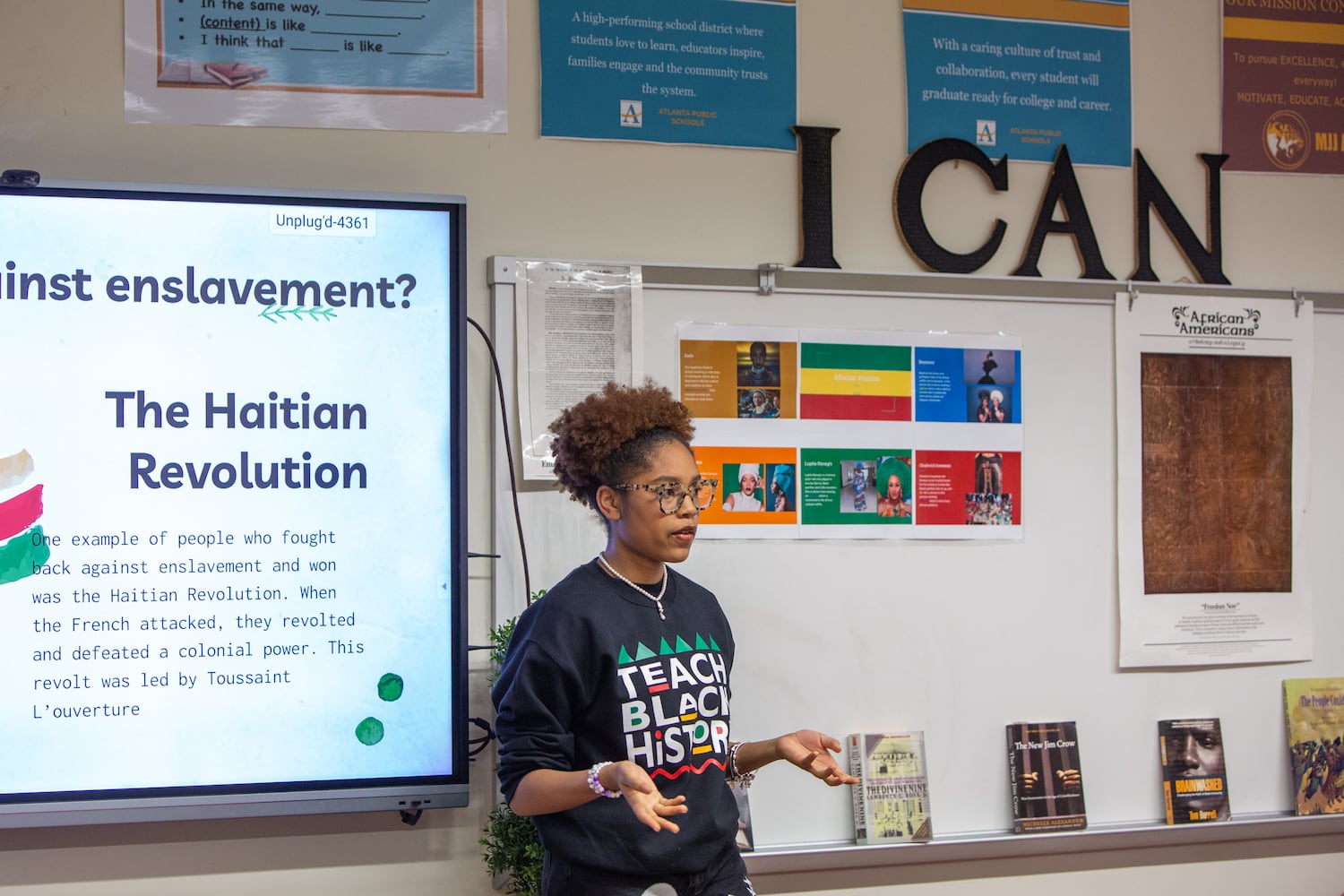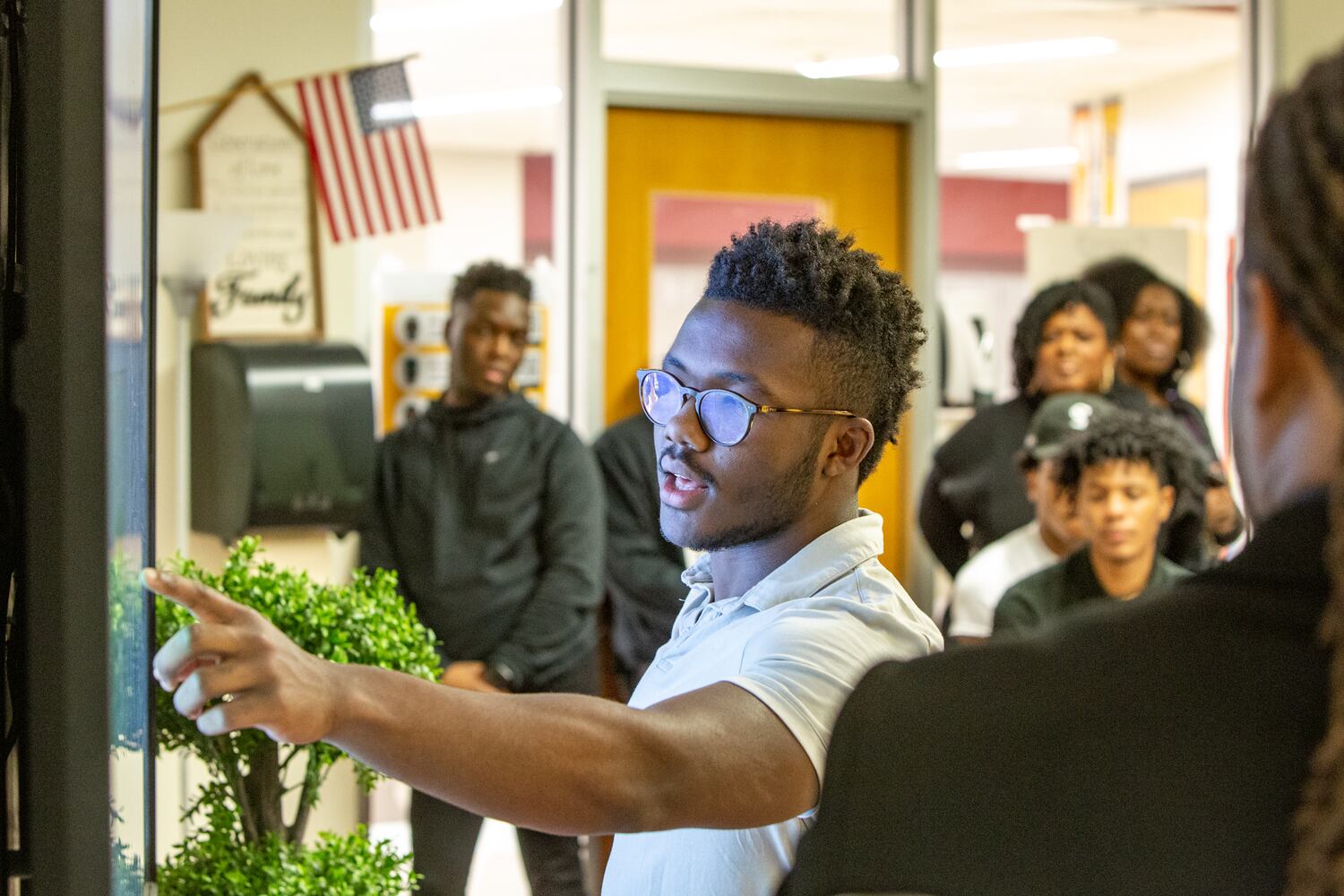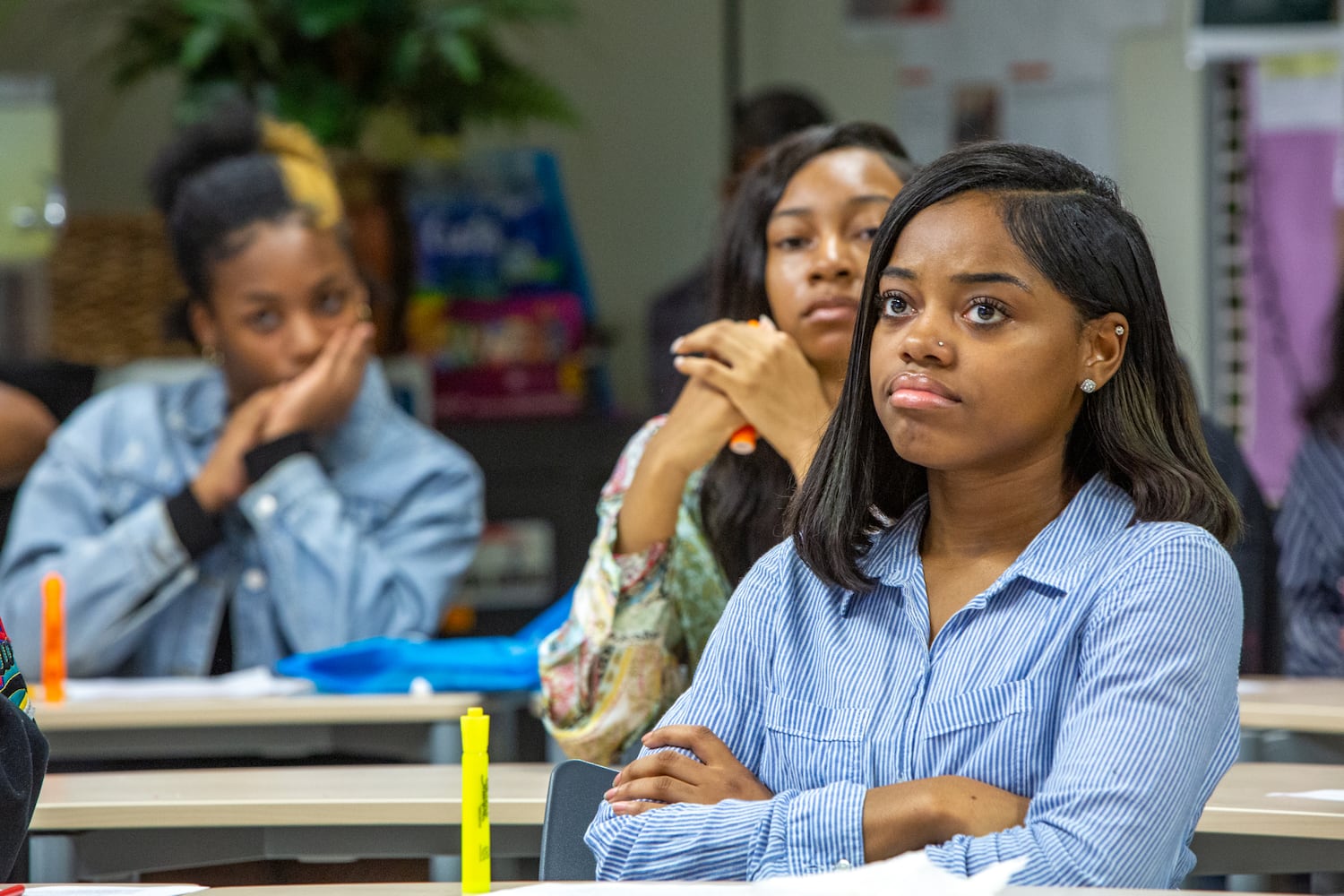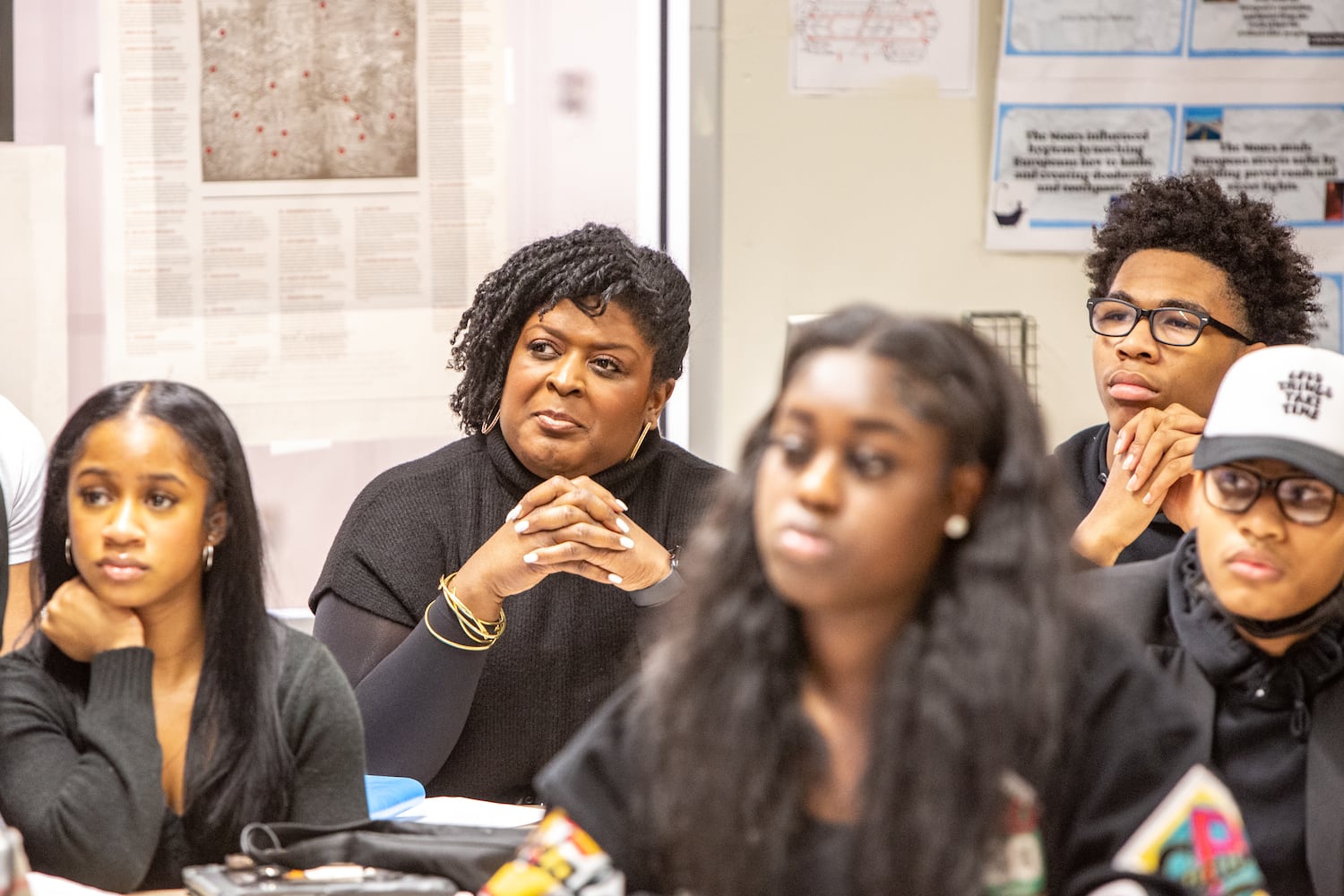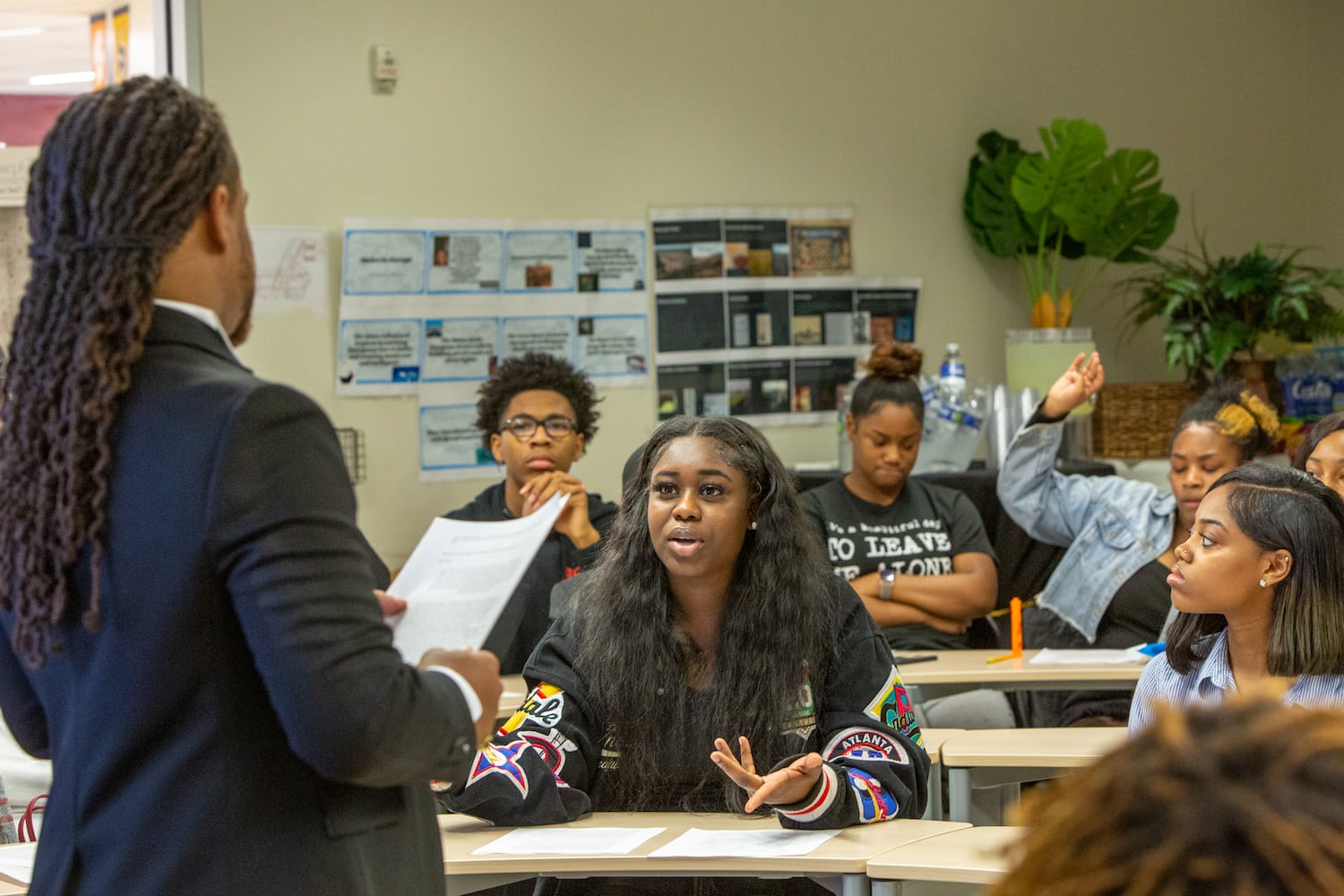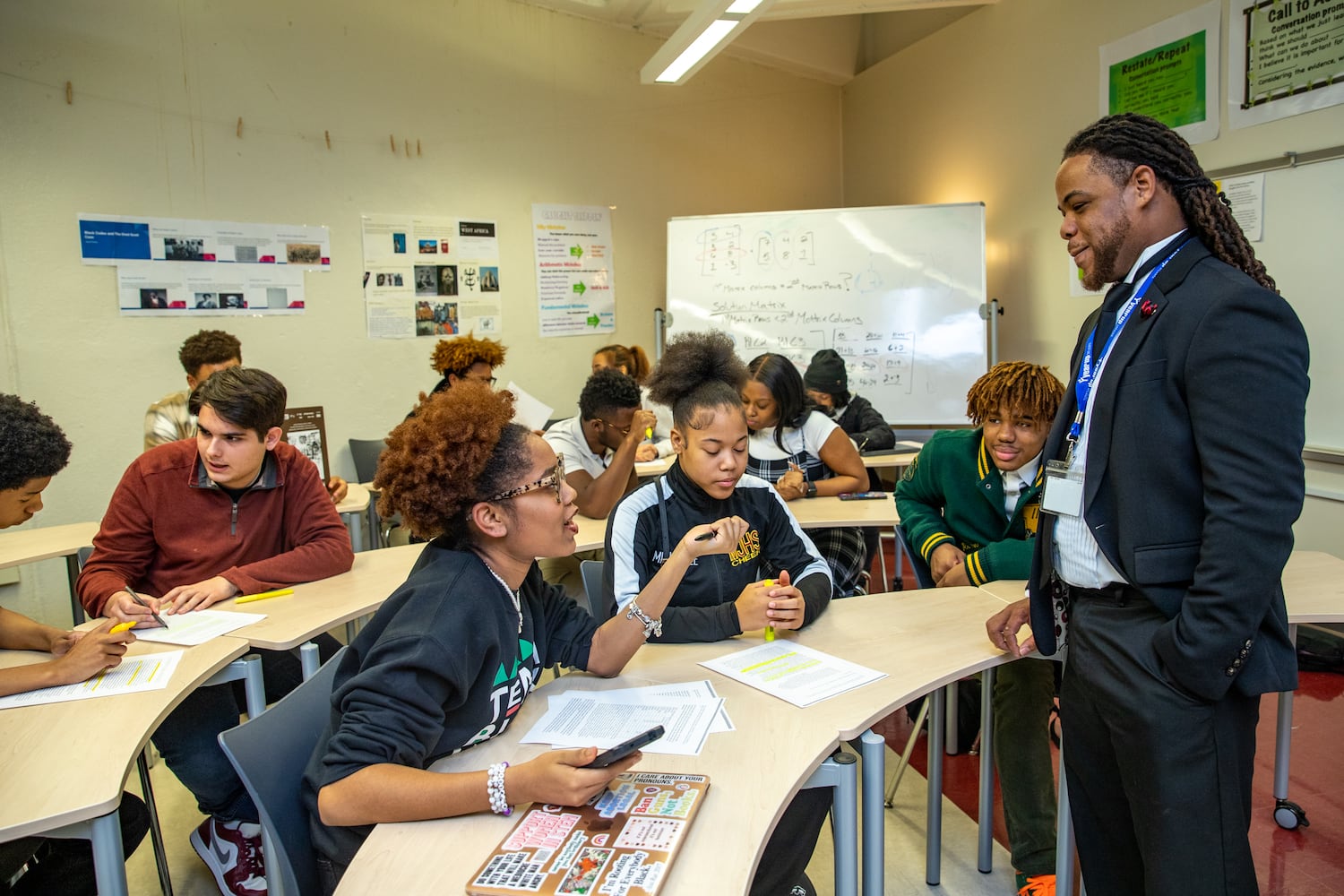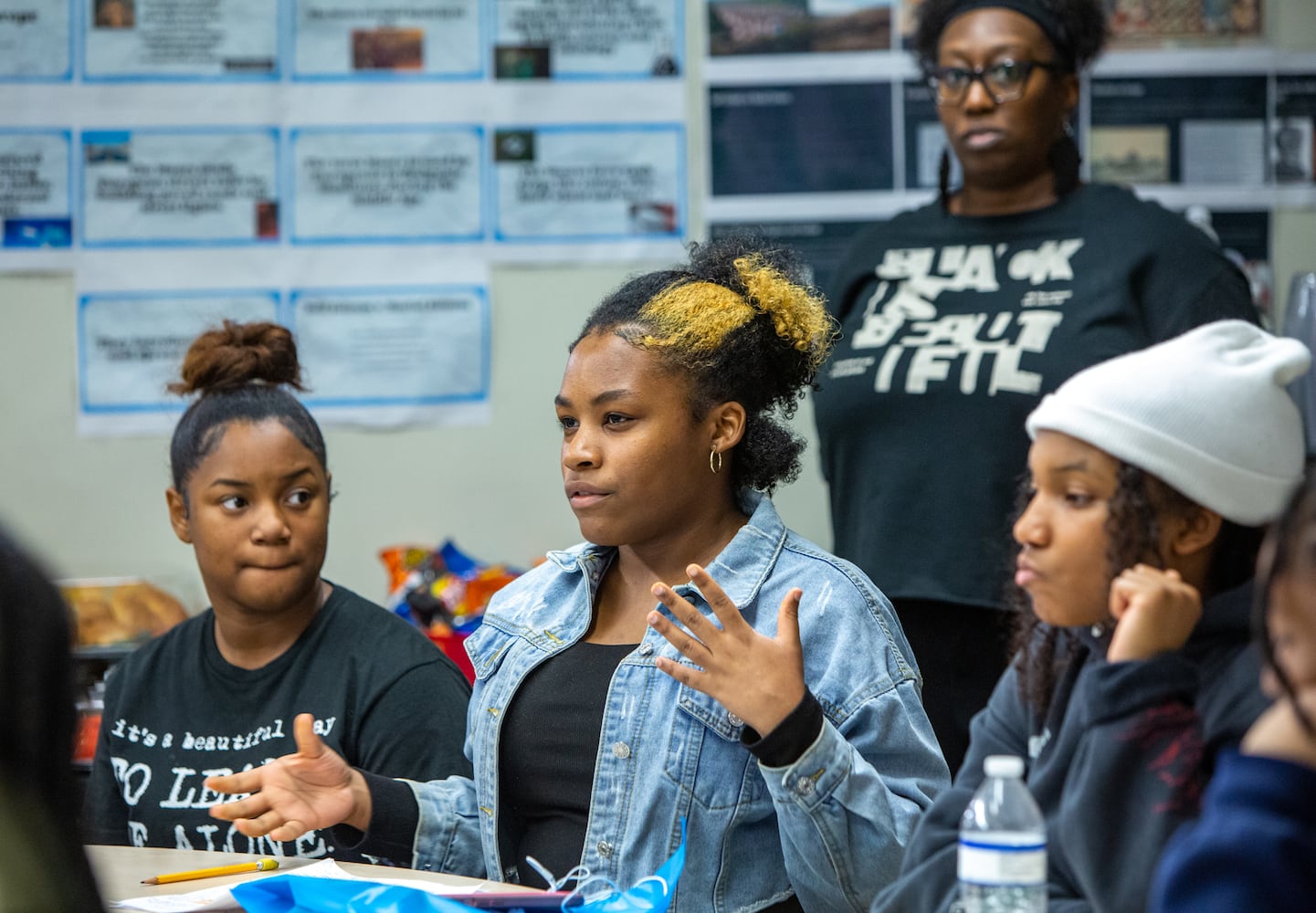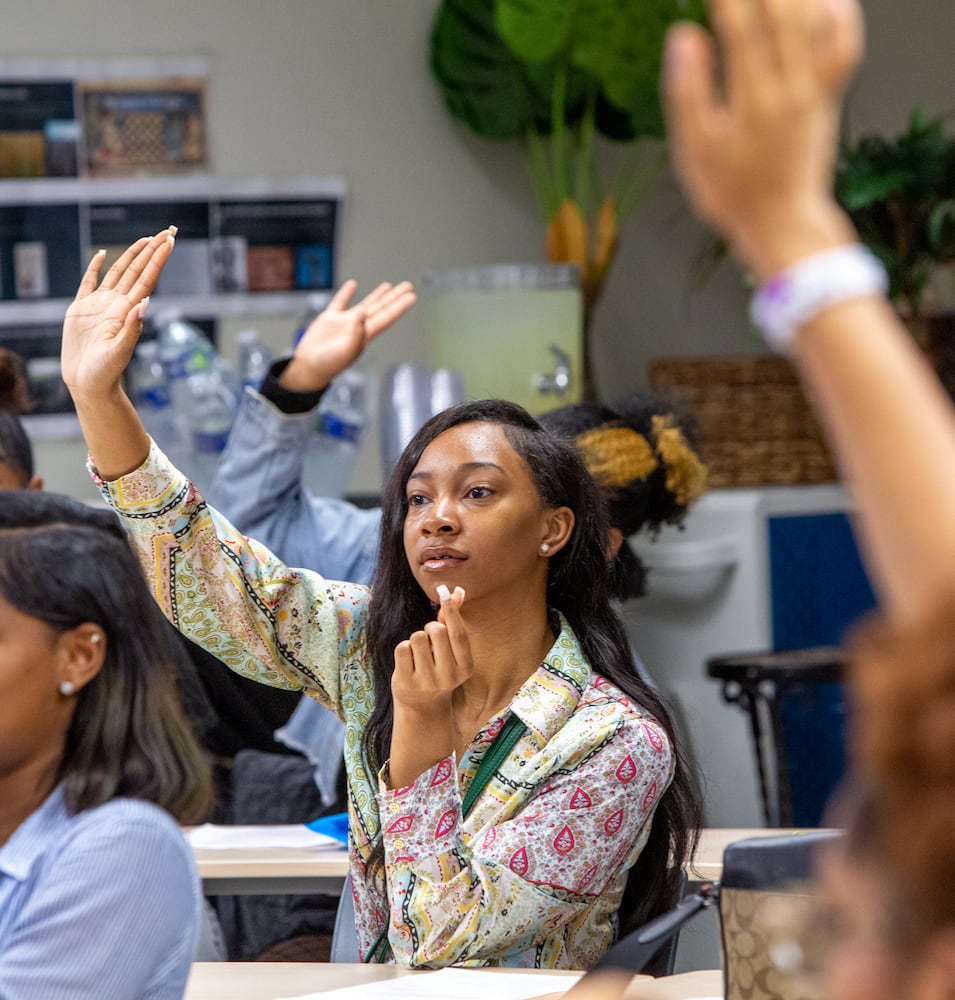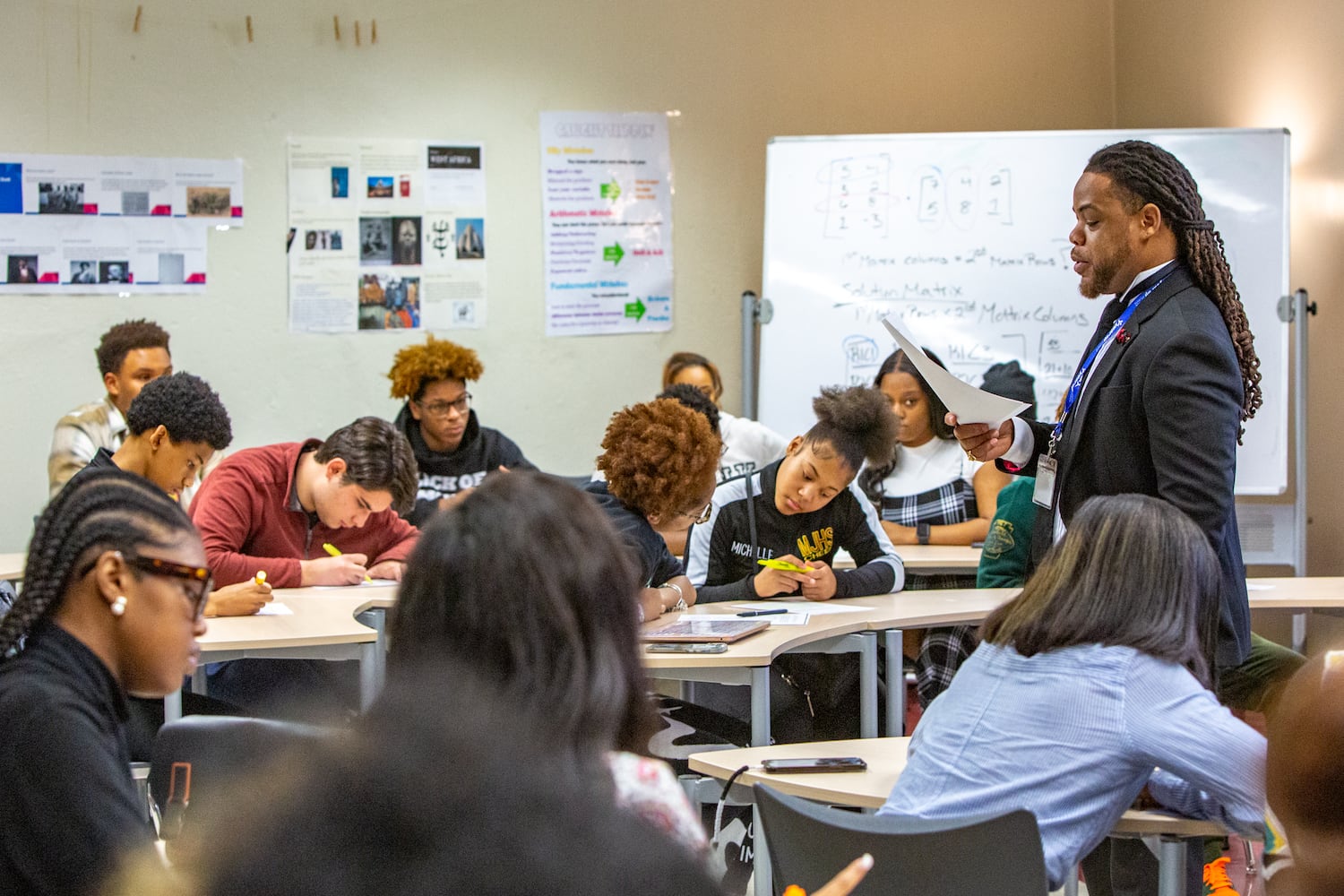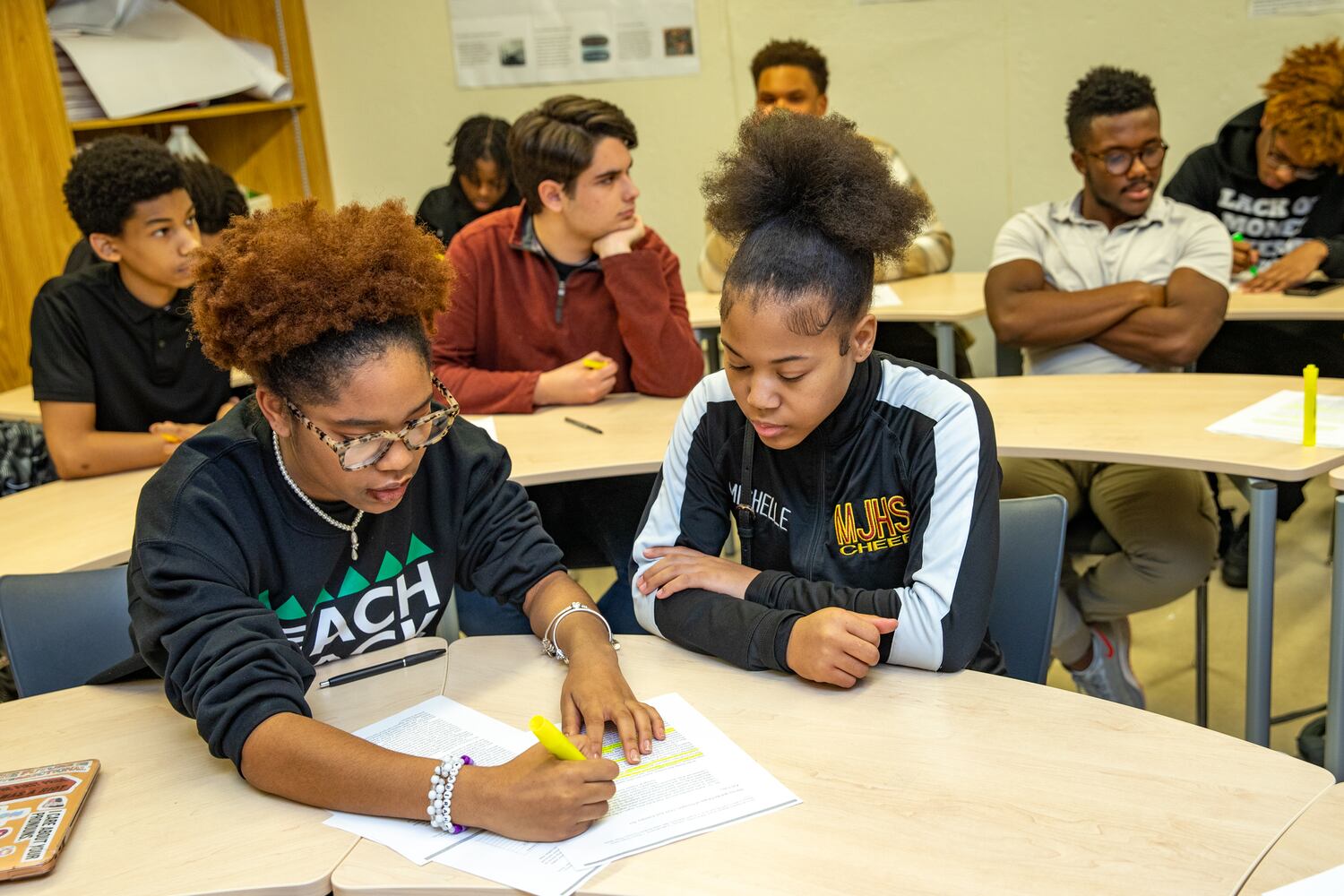When Florida Gov. Ron DeSantis looked at the Advanced Placement’s new African American Studies class, he complained that it seeks to radicalize students. Maynard Jackson High School teacher Rashad Brown, who is teaching one of the 60 pilots of the class underway nationwide this year, hopes the governor is right.
Brown wants the 50 Atlanta students in his two sections of the class to embrace the radical concept that Black history did not begin with the arrival of slave ships to Gadsden’s Wharf in Charleston, that preceding the familiar story of Black oppression and struggle in America is the seldom-told story of centuries of African culture, wealth and achievements including ancient centers of learning.
And Brown wants to disrupt the portrayal of enslaved Africans as complacent and content and reveal resilient people who, despite chains, never stopped fighting for their freedom.
“We are learning about true events. Nobody is making up things,” said junior Kelsey Allen, who took economics over the summer to open a space in her schedule for African American Studies. “Trying to stop kids from learning the history of the country that they live in is more radical.”
“It hurts that I’m 18 years old and only learning about this history now,” said senior Aaliyah Chaney.
Because of the enthusiasm, Jackson may offer up to four sections next year, the second and final year of the pilot when hundreds more high schools around the country will offer the class, including three more additional Atlanta schools.
The college-level course addresses the slave trade, the Civil War, Reconstruction, Jim Crow, segregation and the civil rights movement, but it also leads the students deep into the African diaspora, including the medieval empire of Mali and its wealthy king Mansa Musa.
“In sitting in elementary school until now, the first thing we learned is that we started out as slaves. And all we learned about was oppression, about segregation,” said Chaney. “What about the beauty of us as civilizing human beings in the world? What about all the kings and queens? What about our culture, our music, our clothes? It’s why this course is very important. Let’s learn about the creativity, the positivity.”
Credit: Jenni Girtman
Credit: Jenni Girtman
The abbreviated history of African Americans taught for more than a century in U.S. schools often ignored the lived experiences and voices of enslaved people and erased the horror and abuses of slavery. In her attempt to ennoble the Confederacy, Athens-born Mildred Lewis Rutherford, historian-general of the Daughters of the Confederacy, created a checklist of unacceptable textbooks in 1919, including those portraying slavery as the impetus for the Civil War or slave owners as “cruel and unjust to his slaves.” Schoolchildren in the South learned her idealized Lost Cause version well into the 1960s.
“Growing up, we are all told that Lost Cause type of thing,” said Allen. “Now, we are learning the nuances regarding that whole era. It’s had a great impact on how we think of ourselves and of our history and our ancestors because we have never gone this deep into African culture in any class before.”
In the AP class, students explore primary sources, including the 1857 Dred Scott decision in which the U.S. Supreme Court ruled that slaves, even those who escaped the South to the North, had no rights. Students read narratives from enslaved people, such as Harriet Ann Jacobs, who recounted the sexual abuse and harassment she endured in her 1861 book, “Incidents in the Life of a Slave Girl, Written by Herself.” The class dissects Georgia’s 1829 anti-literacy act, which made it illegal to teach slaves to read or write.
In one recent class, Jackson High 11th and 12th graders dug into why Georgia fought so hard to keep enslaved people illiterate and why educated slaves like rebellion leader Nat Turner were so threatening.
Hands shot up about why the South opposed literacy for slaves.
“To stop them communicating with each other and coming up with plans.”
“So, people wouldn’t have the knowledge to demand freedom.”
“The less you know, the easier it is to manipulate you. You are more compliant.”
Brown drew a parallel with Florida’s efforts to deny students the opportunity to take an AP class on African American culture and history, noting that DeSantis didn’t question the AP classes that teach the languages, literature and cultures of Europe and China.
“When Nat Turner started to read more and started to tell other people what he was able to read, it started rebellion and people fighting for freedom, justice and equality. That shook up the South,” said Brown. “Maybe, everybody’s a little nervous about you learning about AP African American studies.”
“I feel they are hiding our truth,” said student Da’Merra Handley. “I have learned so much about our culture in this course and I feel they should be sharing our culture with everyone else. Everyone should be learning about it.”
APS Superintendent Lisa Herring sat in on a recent class and marveled over the passion and engagement, promising students a return visit in March. “This was the class I wanted when I was a student at Southwest High School in Macon in 1990,” she told them.
Praising both Atlanta Public Schools and the state for sanctioning the AP African American Studies pilot, Brown said, “We are allowed to read and write here and we are allowed to cherish our history.”
“You can’t disregard history because you don’t like parts of it,” said Brown. “You are not supposed to like it all. But you are supposed to learn it so that we don’t repeat it.”
About the Author
Keep Reading
The Latest
Featured
